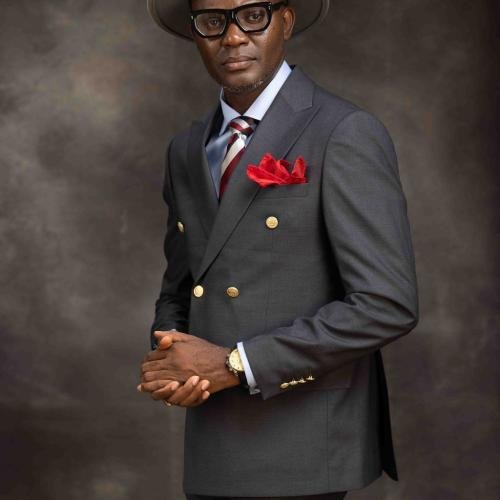My people, let me speak to you directly from the heart. We must be very careful about the way we handle protests in our country. Yes, protesting is a constitutional right, and I will never tell Nigerians not to demand better governance. But we must understand the line between making our voices heard and destroying the very things that keep our society alive.
Public infrastructure — roads, schools, hospitals, electricity lines, bridges, railways, airports, government buildings — these are not the property of one man or one political party. They are for all of us. When we destroy them out of anger, it is like burning down your own house just because you are upset with your landlord. In the end, it is you, the tenant, who will sleep in the rain.
Look at Libya. Before Gaddafi died, Libya had one of the best infrastructures in Africa. Free education, free healthcare, and relatively stable systems. But after the war, after the destruction, after the fire and chaos, the country collapsed. More than ten years later, Libya has not recovered. The hospitals are broken, electricity supply is weak, security is gone, and the country that was once rich has become almost a failed state. Why? Because people destroyed what belonged to them in the heat of anger.
Nigeria must not walk that road.
Why Protecting Public Infrastructure Matters
Let us be honest, Nigeria is not where it should be yet. Our roads are bad, our schools are underfunded, our hospitals are struggling, and power supply is still epileptic. But as bad as it is, if we allow anger to push us into burning down government buildings, destroying trains, vandalizing electricity lines, or setting markets on fire, we are only making life worse for ourselves.
Every infrastructure destroyed takes years to rebuild. The money government will use to repair burnt assets is the same money that should have gone into new hospitals, scholarships, job creation, and poverty reduction. Who suffers in the end? The same ordinary Nigerian who thought destruction was a solution.
Protest Without Destruction
I am not against protests. In fact, protests are part of democracy. But protests should be peaceful, organized, and focused. Look at Martin Luther King Jr. in America. He led peaceful marches, yet his voice was powerful. Look at Nelson Mandela in South Africa. Even when he was jailed, the people pressed with unity and peace until apartheid fell.
Burning buses, destroying rail tracks, and setting buildings ablaze is not protest. That is arson. And let me tell you the bitter truth: those in power may replace those assets eventually, but it is the common man that suffers the longest before help comes.
Lessons for Nigeria
Nigeria must learn from Libya and other nations that allowed destruction to swallow their progress. A country without public infrastructure cannot grow. Investors will not come. Schools will not function. Hospitals will collapse. Transportation will be crippled. Security will weaken.
We must protect what belongs to us. Even if we are angry with government, let us channel that anger into constructive demands:
Call for accountability.
Demand proper budget implementation.
Insist on transparency.
Vote wisely when election time comes.
But let us never destroy the very foundation of our collective development.
My Call to Nigerians
I am calling on Nigerians, especially the youths, to understand this truth: destroying public assets is destroying your future. Do not allow anyone to push you into burning down what we all need. Arson is not a solution. Let us raise our voices peacefully, but let us also guard our infrastructure jealously.
If we keep destroying, we will keep suffering. If we protect, we will eventually enjoy.
Nigeria must not become another Libya.


